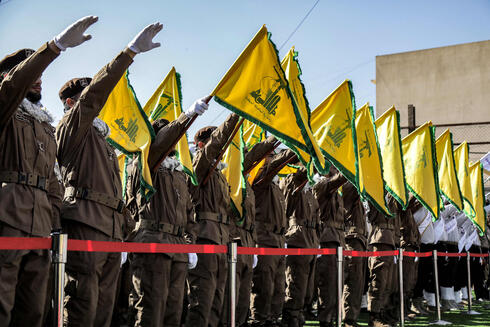
Hezbollah’s financial reach in Africa demands US policy rethink
How did your country report this? Share your view in the comments.
Diverging Reports Breakdown
Hezbollah’s financial reach in Africa demands US policy rethink
Hezbollah relies on a global financing network to sustain its military operations and regional influence. For years, the DRC has played a quiet but critical role in this apparatus, offering a lawless business environment, corrupt financial institutions and zero political will to intervene. Every dollar laundered in Kinshasa helps Hezbollah finance its recovery from the war with Israel. The DRC’s leaders may hope to benefit from the influx of illicit capital, but they are in fact empowering one of the world’s most dangerous non-state actors. This isn’t just a Congolese problem — it’s a global security threat. The U.S. should elevate this issue in its broader counterterrorism strategy and foreign policy toward Central Africa. Washington should empower investigative journalism, civil society and whistleblowers in the region who are working to expose these networks. The issue is not just one of capacity alone; it is also a matter of priorities and political action. It is time to elevate the issue to the top of the political agenda.
The Iranian-backed Lebanese group’s financial networks span much of Africa , feeding its operations in the Middle East. Countries such as Côte d’Ivoire, Guinea and Sierra Leone have all been cited in investigations and sanctions as nodes in this transnational web.
3 View gallery Hezbollah operatives ( Photo: AP )
One of Hezbollah’s most brazen strongholds in Africa is the Democratic Republic of the Congo (DRC). Far from being an unwitting victim of transnational crime, the DRC has become a permissive environment — and at times, an outright facilitator of Hezbollah’s financial empire. It’s time the United States stopped treating Kinshasa as a fragile partner and started holding it accountable as a complicit actor.
Hezbollah, a designated terrorist organization, relies on a global financing network to sustain its military operations and regional influence. For years, the DRC has played a quiet but critical role in this apparatus, offering a lawless business environment, corrupt financial institutions and zero political will to intervene.
The U.S. Department of the Treasury has repeatedly exposed Hezbollah’s financial presence in the DRC. In 2018, the Office of Foreign Assets Control (OFAC) sanctioned several DRC-based individuals and companies involved in generating tens of millions of dollars for the group. These networks use front companies — often in mining, trade and construction — to legitimize illicit transactions. They exploit weak compliance at Congolese banks and take full advantage of Kinshasa’s unwillingness to investigate politically connected operators.
This is not just about institutional weakness; it is also about willful neglect and, in some cases, open facilitation. Investigations have shown that certain DRC financial institutions — including BGFIBank DRC — have enabled sanctioned Hezbollah financiers to bypass restrictions and move funds globally.
3 View gallery The Democratic Republic of the Congo ( Photo: Reuters )
The consequences extend far beyond Africa. Every dollar laundered in Kinshasa helps Hezbollah finance its recovery from the war with Israel. The DRC’s leaders may hope to benefit from the influx of illicit capital, but they are in fact empowering one of the world’s most dangerous non-state actors. This isn’t just a Congolese problem — it’s a global security threat.
Washington’s response so far has been insufficient. The DRC has continued to receive hundreds of millions in U.S. aid and diplomatic support, even as it refuses to act against Hezbollah’s financiers. This approach must change. The United States has both the leverage and the moral obligation to confront Kinshasa directly.
Get the Ynetnews app on your smartphone: Google Play : https://bit.ly/4eJ37pE | Apple App Store : https://bit.ly/3ZL7iNv
First, the U.S. should dramatically expand targeted sanctions against Congolese officials, banks and businesses known to be enabling Hezbollah’s operations. These measures must extend beyond individuals to institutions that knowingly process or shelter illicit financial flows.
Second, Washington should condition all forms of aid — from security assistance to development grants — on measurable anti-terror finance reforms. If Kinshasa wants to remain a U.S. partner, it must prove it is not a Hezbollah partner in practice.
3 View gallery Hezbollah operatives ( Photo: AFP )
Third, the U.S. should elevate this issue in its broader counterterrorism strategy and foreign policy toward Central Africa. The State Department should pursue bilateral and multilateral efforts to avert the DRC’s financial role in Hezbollah’s global operations.
Finally, Washington should empower investigative journalism, civil society and whistleblowers in the region who are working to expose these networks at great personal risk. Transparency is Hezbollah’s enemy — and the DRC’s as well.
Some may argue that the DRC faces too many internal challenges to effectively police international terror finance. But those very challenges are what make it such a useful conduit for Hezbollah’s financial operations. The issue is not just one of capacity alone; it is also a matter of priorities and political will.
If we are serious about dismantling Hezbollah’s global financial infrastructure, all enablers must be held to account, including those who benefit from looking the other way. The DRC is not uniquely culpable, but it is strategically significant. Ignoring its role undermines the effectiveness of broader counterterrorism efforts. It’s time to elevate this issue and to back words with action.
Dr. Asher (Asi) Lubotzky is a Senior Research Fellow at the Israel-Africa Relations Institute and a teaching fellow in the political science department of the University of Houston.
Source: https://www.ynetnews.com/opinions-analysis/article/skypyrt8lg
